PhilHealth’s free medicines still out of reach

For many Filipino households, purchasing maintenance medications for conditions like heart disease and diabetes takes up a large portion of their monthly income. This heartbreaking reality often forces low-income families to choose between their medications and a kilo of rice.
In many countries, their national health insurance provides automatic and on-the-spot discounts at pharmacies. Patients simply present their health card and receive their medicines at a reduced cost with no extra steps. During my educational visit to Taiwan last month, I came across a community pharmacy displaying the National Health Insurance signage outside of the pharmacy, much like the equivalent of PhilHealth signage that we see outside of accredited hospitals and other health facilities. This indicates that their NHI is integrated in the drugstore system, allowing patients to purchase medications with just a small co-payment. Unfortunately here in the Philippines, this level of convenience, automation, and accessibility at neighborhood pharmacies continues to be a challenge.
The government’s P20,000 yearly free medicine program through the eGov PH App was launched to fill this gap. As of this writing, it covers 75 essential medicines and aims to reduce out-of-pocket spending. On paper, it is a game changer. But in reality, it remains too inconvenient and complicated for most Filipinos to use. To access the benefit, one must register with the PhilHealth Yakap program, select an accredited hospital or health facility online, get a Yakap-accredited doctor to issue a prescription, then go to an accredited pharmacy or Gamot facility to claim the medicine.
Currently, only a limited number of pharmacies nationwide are participating. As of now, the only major drugstore chain in the list that I find well-known is Generika Drugstore. That means that most Filipinos still cannot simply walk into their neighborhood pharmacy and use their benefit. This is understandable since the program is still at its infancy, and the Philippine government has always been weak and slow when it comes to implementation.
Another problem is the long-term sustainability of the program. While pharmacies may want to participate, they see lower revenue from discounted medicines, especially when the list of reimbursable items is limited, restricting the volume of eligible sales. Worse, pharmacies may face delayed reimbursements, which is a problem already widespread in PhilHealth’s hospital system. Hospitals often wait months or years to be paid. If pharmacies go through the same, many small drugstores may not survive the cash flow hit, especially when they are already providing discounts up front. In the long run, this could discourage pharmacies from continuing their participation, eventually disrupting the program’s purpose.
PhilHealth must step up the game and prioritize serving the Filipino people rather than allowing corruption and the misuse of billions in public funds to persist. PhilHealth must adopt a real-time digital deduction and reimbursement system. PhilHealth could create a prepaid digital health wallet or QR code system that deducts the cost of medicines instantly and settle payments with pharmacies on a regular weekly or biweekly basis.
On the other hand, while there are over-the-counter medicines in the list of 75 medicines such as paracetamol, ibuprofen, and iron supplements, they still require a Yakap prescription from a doctor and must be claimed at an accredited Gamot facility. This makes accessibility more difficult than simply buying them at a nearby pharmacy. In reality, patients will simply use their personal money than go through these extra steps for items that should be readily available.
Additionally, there are medicines or health-care products that are not found in the current list that patients may need. This will lead to patients not fully using their P20,000 allocation.
This is why I propose that any unutilized or underutilized portion of the P20,000 allocation should be allowed to cover basic health and hygiene essentials such as multivitamins, soap, toothpaste, alcohol, wound care items, feminine products (especially sanitary napkin), and everyday relief preparations like Efficascent Oil, Vicks, or Katinko, which are all available in pharmacies. These are not luxuries, they are necessities that many low-income families still forgo due to cost.
The Universal Health Care Act (Republic Act No. 11223) already gives PhilHealth the mandate to improve access to medicines. But good policy must be backed by good systems.
Let us expand the Yakap program. Let’s simplify the availment process. Let us make deductions and reimbursements automatic and transparent.
Most importantly, let us bring this benefit closer to the people, starting with the community pharmacy just around the corner.
—————-
Teresa May Bandiola is an academic pharmacist, YA author, medical activitist, and podcast host. Her work bridges science, literature, and public discourse. She can be reached at bandiolateresamayb@gmail.com.

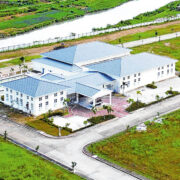

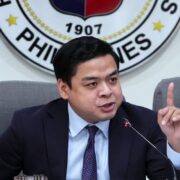
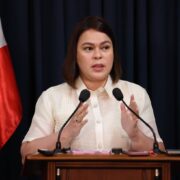
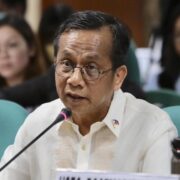
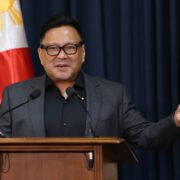
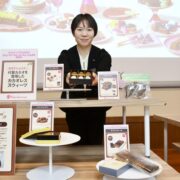
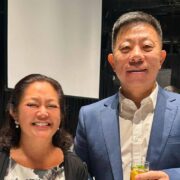


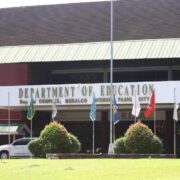


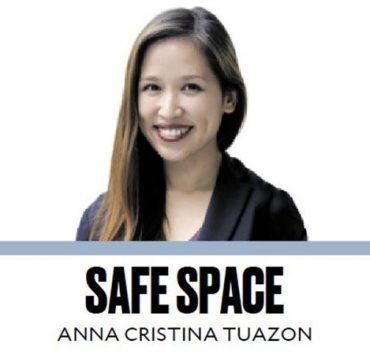


Dynasties still dominate Southeast Asian politics